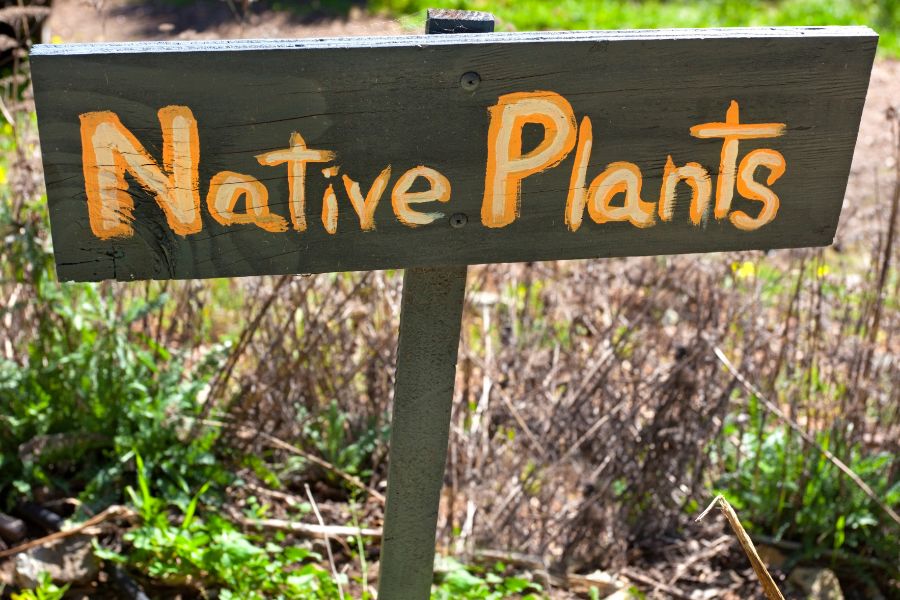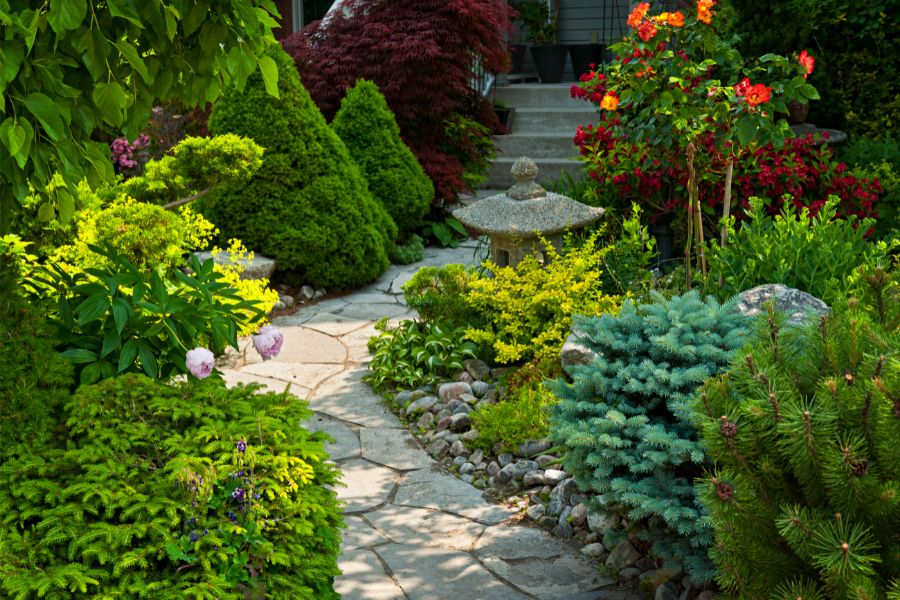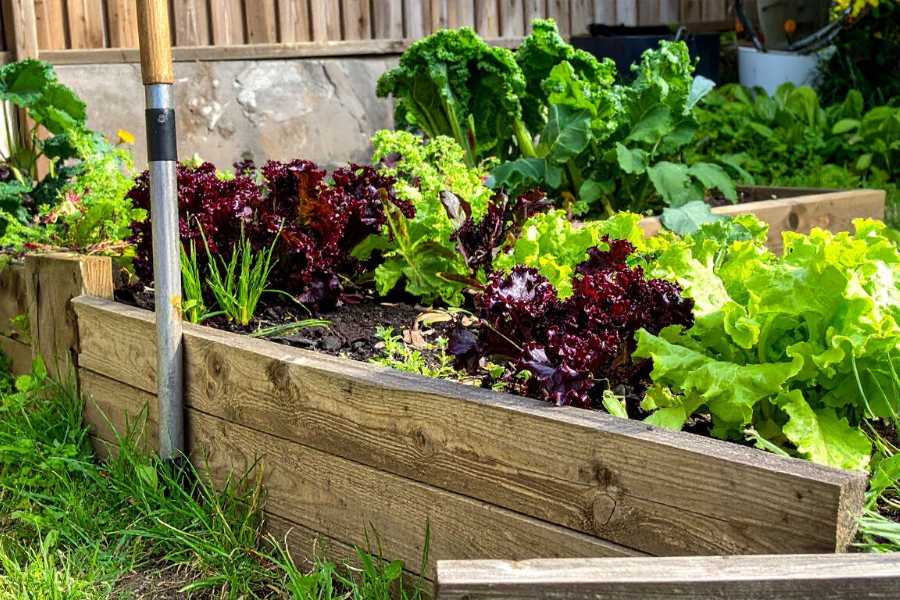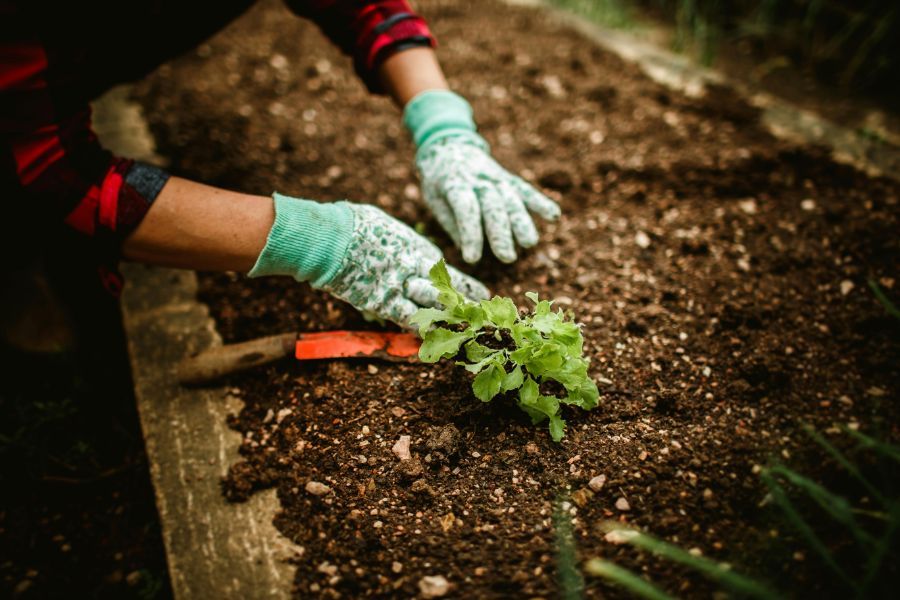As part of our series on sustainability and property management in Wellington, this post explores a topic that’s often overlooked but critically important: sustainable landscaping. For landlords, creating eco-friendly outdoor spaces is not just a design choice – it’s a smart investment that attracts environmentally conscious tenants, keeps maintenance costs down, and boosts rental appeal.
In this guide, we’ll look at why sustainable landscaping matters for rental properties, the best techniques for achieving it, and the benefits for landlords and tenants. We’ll also share examples of successful projects to inspire your next upgrade.
Table of Contents
Why Sustainable Landscaping Matters for Rental Properties
Sustainable landscaping goes beyond curb appeal. It’s about designing outdoor spaces that conserve resources, protect biodiversity, and reduce the property’s environmental impact. For Wellington landlords, this approach has several advantages:
- Attracting Quality Tenants: More tenants are seeking rentals that align with their eco-conscious values.
- Meeting Regulatory Trends: As New Zealand continues to focus on sustainability, resource efficiency will play an even bigger role in compliance requirements.
- Reducing Long-Term Costs: Low-water, low-maintenance landscapes mean fewer ongoing expenses for irrigation, fertiliser, and upkeep.
The Ministry for the Environment notes that urban green spaces can improve air quality, regulate temperature, and boost wellbeing – all things tenants value when choosing a home.
Read more: Energy Efficiency Revolution: Upgrading Wellington Rentals for a Sustainable Future
Key Techniques for Sustainable Landscaping in Wellington
Creating eco-friendly outdoor spaces in NZ rental properties doesn’t have to be expensive or complicated. Here are proven techniques to get you started:
1. Water Conservation
Water conservation is central to sustainable landscaping. Wellington can experience both heavy rainfall and dry periods, so efficient water use is critical:
- Install Drip Irrigation Systems: These deliver water directly to plant roots, reducing waste.
- Use Mulch: Mulching flowerbeds locks in soil moisture and reduces the need for frequent watering.
- Collect Rainwater: A simple rain barrel can provide water for gardens during dry spells.

2. Planting Native Species
Native plants are adapted to Wellington’s climate, requiring less water, fertiliser, and maintenance. They also support local biodiversity by providing food and habitat for native birds and insects.
- Examples of great native choices include pōhutukawa, flax, and kawakawa.
- A native hedge can provide privacy without the need for chemical fertilisers or constant trimming.
3. Composting and Soil Health
Healthy soil is the foundation of any eco-friendly outdoor space:
- Create a Composting System: Composting reduces green waste while creating nutrient-rich soil.
- Avoid Chemical Fertilisers: Opt for organic soil amendments that improve soil structure naturally.

4. Low-Maintenance Garden Design
Low-maintenance gardens are a win-win for landlords and tenants:
- Use Ground Covers: They reduce weeds and the need for mowing.
- Choose Perennials Over Annuals: Perennials come back each year, saving money and time.
- Hardscaping Solutions: Gravel paths, permeable pavers, and raised garden beds look great and are easy to maintain.
5. Encouraging Tenant Engagement
Where possible, encourage tenants to participate in garden upkeep:
- Provide basic tools or a small compost bin.
- Offer rent discounts or incentives for tenants who maintain a shared vegetable or herb garden.
Read more: The Financial Benefits of Going Green: Tax Incentives and Grants for Wellington Landlords
Benefits for Landlords and Tenants
Sustainable landscaping offers benefits that go beyond aesthetics:
For Landlords
- Lower Ongoing Costs: Low-maintenance landscaping means reduced lawn care and irrigation expenses.
- Increased Property Value: Homes with attractive, eco-friendly gardens have higher market appeal.
- Tenant Retention: Tenants who value sustainability are more likely to stay long-term.
Read more: Green Certifications: Boosting Your Wellington Rental’s Appeal and Value
For Tenants
- Healthier Outdoor Spaces: No harsh chemicals mean safer play areas for children and pets.
- Lower Utility Bills: Water-efficient gardens keep water costs low.
- More Enjoyable Living Environment: Green spaces improve mental wellbeing and provide areas for relaxation.
Examples of Successful Eco-Friendly Landscaping Projects
Here are a few inspiring examples of how sustainable landscaping can be deployed in Wellington rental properties:
- Case Study 1: Native Plants and Mulch Provide a Rental Upgrade
The landlord replaced a large lawn with a mix of native plants and mulch. A simple drip irrigation system was installed, reducing water consumption by 40%. Tenants reported a cooler home in summer thanks to improved shade.

- Case Study 2: Communal Gardens Encourage Community
A property manager turned an unused backyard into a shared vegetable garden with raised beds and composting facilities. This initiative not only reduced waste but also improved tenant satisfaction and created a sense of community. - Case Study 3: Low-Maintenance Coastal Gardens Reduce Costs
Using drought-tolerant natives and gravel pathways, the landlord created a modern, low-care garden that stays green year-round. Maintenance costs dropped by 30%.
These examples show how sustainable landscaping Wellington projects can save money while creating inviting eco-friendly outdoor spaces NZ renters love.
Read more: Sustainable Property Management in 2025: Embracing Green Practices in Wellington
The Competitive Advantage of Eco-Friendly Outdoor Spaces
In Wellington’s competitive rental market, properties that offer low-maintenance gardens for rentals stand out. Landscaping is one of the first things tenants notice during a viewing, and a well-designed, sustainable garden can be the deciding factor for signing a lease.
Investing in sustainable landscaping Wellington strategies now helps future-proof your property, meet tenant expectations, and align with the growing demand for environmentally friendly living solutions.
Frequently Asked Questions (FAQ)
Is sustainable landscaping expensive to implement?
Not necessarily. While there can be upfront costs for installing systems like drip irrigation, the long-term savings on water and maintenance quickly offset the investment.
Can I use native plants in a small rental property garden?
Absolutely. Many native plants are compact and perfect for small courtyards or balconies. They also thrive with minimal care.
Do tenants have to maintain the garden?
This depends on the tenancy agreement. Some landlords include garden maintenance in the rent, while others ask tenants to handle basic upkeep.
Will sustainable landscaping really attract better tenants?
Yes. Studies show that tenants are willing to pay more for rentals with eco-friendly features, and properties with attractive outdoor spaces tend to have higher retention rates.
Ready to create an eco-friendly outdoor space for your rental property?
Contact Taylor Property Plus today to learn how landlords in Wellington are already deploying sustainable landscaping solutions that are enhancing tenant satisfaction, reducing costs and increasing the value of properties, as well as supporting a greener future for the city.



